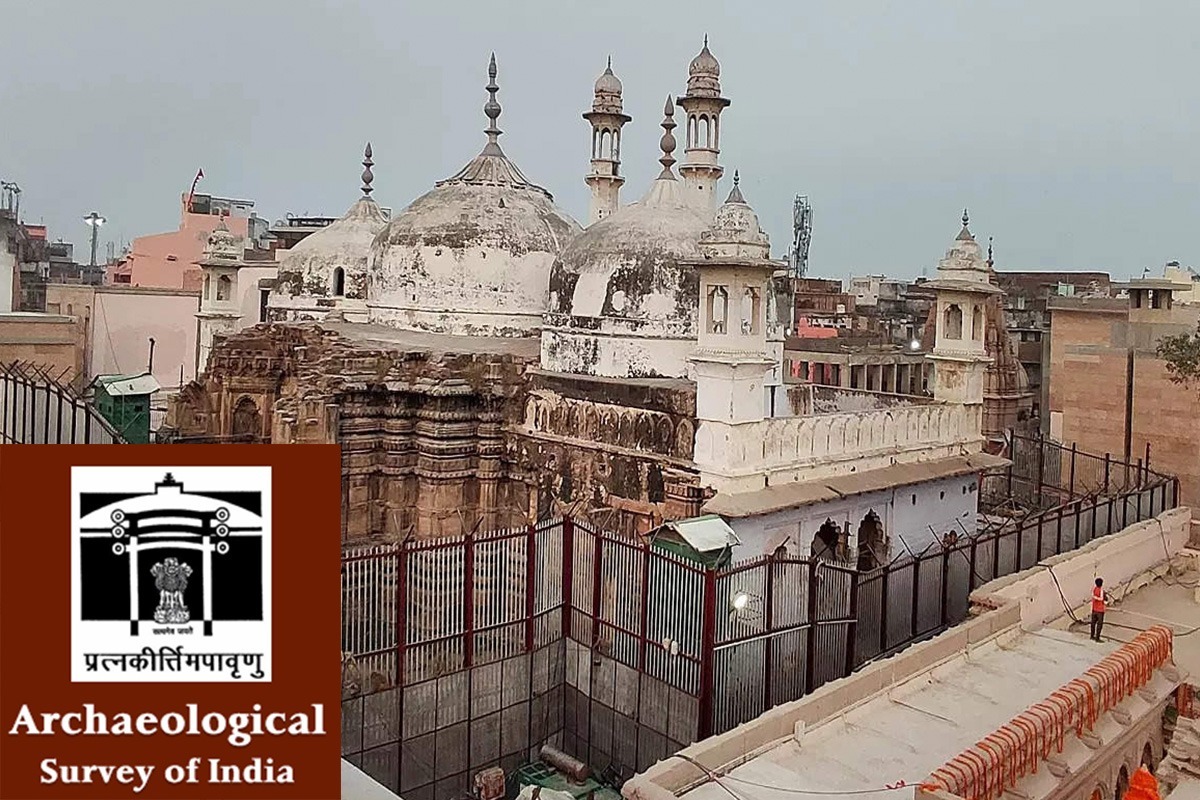The district judge court in Uttar Pradesh has granted the Archaeological Survey of India (ASI) a seventh extension to complete the survey of Gyanvapi mosque. The ASI has been given one more week, until December 18, to submit the scientific study and survey report on the mosque. ASI was expected to present its survey report of the Gyanvapi mosque complex in Varanasi to the court on Monday, after several delays and extensions.
The court had initially given the ASI a deadline of November 17, which was later extended to November 28, and then to December 10. The ASI had claimed that it had finished the survey on November 2 but needed more time to compile the report and provide details of the equipment used in the survey.
The survey was ordered by a Varanasi court on July 21, following a petition by four women who sought permission to pray at the Shringar Gauri Shrine, which is behind the western wall of the mosque. The Allahabad High Court had earlier allowed the ASI to survey the mosque complex, excluding the Wuzukhana area, which has been sealed by the orders of the Supreme Court. The survey is aimed at determining whether the mosque was
The district judge court in Uttar Pradesh has granted the Archaeological Survey of India (ASI) a seventh extension to complete the survey of Gyanvapi mosque. The ASI has been given one more week, until December 18, to submit the scientific study and survey report on the mosque. ASI was expected to present its survey report of the Gyanvapi mosque complex in Varanasi to the court on Monday, after several delays and extensions.
The court had initially given the ASI a deadline of November 17, which was later extended to November 28, and then to December 10. The ASI had claimed that it had finished the survey on November 2 but needed more time to compile the report and provide details of the equipment used in the survey.
The survey was ordered by a Varanasi court on July 21, following a petition by four women who sought permission to pray at the Shringar Gauri Shrine, which is behind the western wall of the mosque. The Allahabad High Court had earlier allowed the ASI to survey the mosque complex, excluding the Wuzukhana area, which has been sealed by the orders of the Supreme Court. The survey is aimed at determining whether the mosque was built over a demolished temple, as claimed by some Hindu groups.
The Gyanvapi mosque complex is a site of historical and religious significance, as well as a source of contention and controversy. The mosque was built by Mughal emperor Aurangzeb in the 17th century, allegedly after destroying a temple dedicated to Lord Vishwanath. The temple was later rebuilt adjacent to the mosque, and both structures coexist within a fortified wall. The dispute over the ownership and status of the mosque has been going on for decades, with several lawsuits and petitions filed by various parties. The issue has also sparked communal tensions and violence in the past and remains a sensitive and volatile matter.
Also Read: MBS, India, and Pax Americana
The ASI’s survey report is expected to shed light on the archaeological and historical evidence related to the mosque complex, and possibly influence the outcome of the legal cases pending in the courts. The report is also likely to have an impact on public opinion and sentiment on the issue, as well as the political and social implications of the dispute. Therefore, the ASI must deliver a thorough, unbiased, and credible report, based on scientific and factual data, without any further delay.
The ASI is a reputed and respected institution, entrusted with the responsibility of preserving and studying the cultural heritage of the country. It has conducted several surveys and excavations of historical and religious sites in the past and has contributed to the advancement of knowledge and understanding of India’s rich and diverse history. The ASI should uphold its reputation and integrity, and not succumb to any pressure or influence from any quarters. The ASI should also ensure that its report is transparent and accessible to the public and that it addresses the queries and concerns raised by the stakeholders and the court.
The Gyanvapi mosque complex is not just a matter of bricks and mortar, but a symbol of India’s history and culture, with a story of different eras and regimes over centuries. The ASI’s survey report should not be seen as a tool to settle scores or claim supremacy but as an opportunity to establish our collective truth. The ASI should not delay any further, and present its survey report as soon as possible, in the interest of justice, peace, and harmony.









